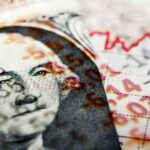Silicon Valley Bank’s catastrophic collapse was marked by a startling revelation—on March 9th, the bank was losing an astonishing $1 million in deposits every second.
This shocking fact emerged during the recent US Senate Banking Committee hearing, where Greg Becker, the former CEO of SVB Financial Group, shed light on the bank’s demise.
In written testimony, Becker attributed the downfall to a combination of factors. The Federal Reserve’s rapid rate hikes, unprecedented in decades, coupled with the negative sentiment on social media, played a significant role.
He highlighted how the Federal Reserve’s reassurances of low-interest rates and transient inflation had prompted banks to invest nearly $2.3 trillion in low-yield securities between 2020 and 2021.
The bank run
Becker emphasized the detrimental impact of media comparisons between SVB and Silvergate Capital Corp., which had announced wind-down plans shortly before SVB’s seizure.
The association between the two banks fueled rumors and misconceptions, rapidly spreading online and igniting the unprecedented bank run. By the end of March 9th, a staggering $42 billion in deposits had been withdrawn from SVB in just 10 hours—equivalent to $1 million disappearing every second.
In a testimony, Greg Becker said:
“SVB had been compared to Silvergate in a Financial Times article published on February 21, which provided negative commentary regarding Silvergate and SVB’s securities portfolios.14 Silvergate’s failure and the link to SVB caused rumors and misconceptions to spread quickly online, leading to the start of what would become an unprecedented bank run.15 The next day, the bank run picked up steam.16 By the end of the day on March 9, $42 billion in deposits were withdrawn from SVB in ten hours, or roughly $1 million every second”.
Silicon Valley Bank, renowned for its focus on the technology–startup ecosystem, was particularly vulnerable. Its heavy concentration in the tech sector, coupled with a portfolio of long-dated bonds that devalued as interest rates climbed, made it a prime target for a bank run.
This triggered a series of subsequent bank runs, leading to the seizure of Signature Bank and the eventual collapse of First Republic Bank.
Becker acknowledged the lapses raised by auditors and regulators, which SVB executives were actively addressing. Efforts included expanding the bank’s Treasury management team to enhance risk management.
SVB’s asset base, surpassing $100 billion in February 2021, prompted the bank to consult with the Federal Reserve Board to hire a chief risk officer with experience in managing large financial institutions.
“I never imagined that these unprecedented events could happen”
Reflecting on the catastrophic events, Becker expressed his profound sorrow for the impact on SVB’s employees, clients, and shareholders:
“I never imagined that these unprecedented events could happen to SVB and strongly believe that the leadership team and I made the best decisions we could with the facts, forecasts, and outside expert advice available to us at the time and that we made these decisions in good faith and in the best interests of SVB, its employees, and its clients. I believe SVB had a positive impact on the tens of thousands of companies that the bank supported. The takeover of SVB has been personally and professionally devastating, and I am truly sorry for how this has impacted SVB’s employees, clients, and shareholders. I hope that I can provide insights that will help this Committee and the American public better understand what happened”.
The public scrutiny of executives from failed banks continues, with other industry figures such as Scott Shay, co-founder and former chairman of Signature Bank, also testifying before the Senate Banking Committee.







